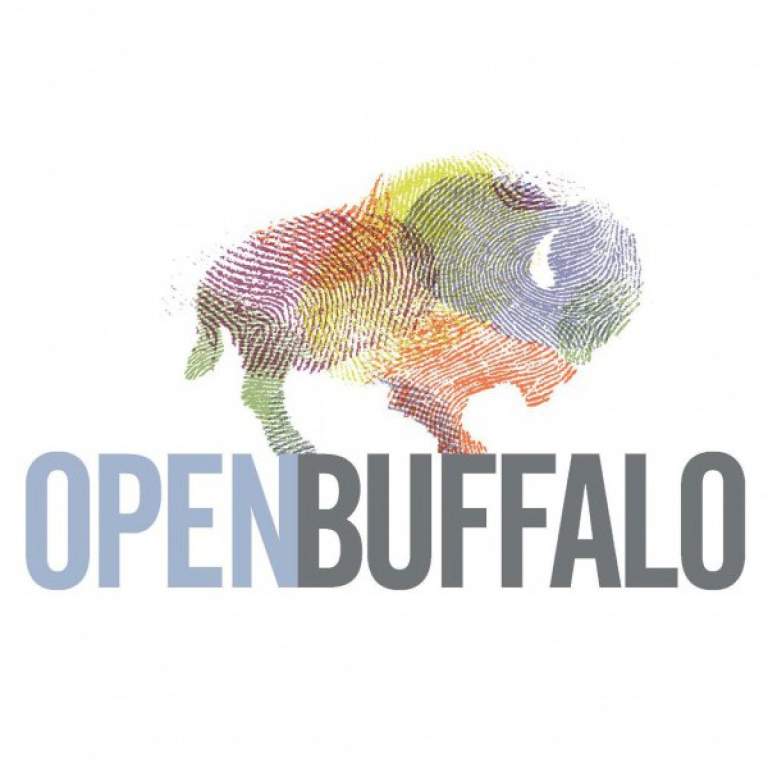
Ecological Justice, Justice & Opportunity
Open Buffalo Celebrates Advancement of Justice, Reconciliation and Community Protection in NYS
Published July 1, 2019
At the close of the 2019 New York state legislative session, the solidarity of community-led movements across the state has manifested historic wins towards a more democratic, just society for all New Yorkers. From Buffalo to Long Island, residents have built collective power and resilience to achieve this year’s critical policy shifts.
Open Buffalo celebrates the passage of new state laws to advance marijuana decriminalization and climate protections, the central campaigns of the organization’s 2019 legislative platform. As a regional movement leader for Western New York, Open Buffalo has invested in community education and coalition-building on statewide advocacy issues to advance its core work for racial, economic, and ecological justice.
Cannabis Justice
New legislation to further decriminalize marijuana possession represents an important step forward in the ongoing fight for this racial equity issue in New York. While adult-use cannabis has not yet been legalized, thousands of people will benefit from the State Legislature’s recent passage of laws reforming the way the plant is policed, and the way we treat those who use it.
Taking effect in late August, the new measures reduce the charge for possessing less than two ounces of marijuana from a misdemeanor to a violation, as well as lower the fines. Significantly, the legislation also establishes procedures for the first time to expunge low-level marijuana convictions, creating a path for impacted individuals to clear their records.
“Expungement of low-level marijuana convictions is one of the most critical pieces to emerge from this state legislative session, with life-changing impacts for thousands of New Yorkers,” said Franchelle Parker, Open Buffalo’s Executive Director. “For so many people, expungement allows the reclamation of meaningful opportunities like improved job prospects, access to higher education, and more ability to engage in civic life.”
Since 2017, Open Buffalo’s Justice & Opportunity Coalition has prioritized its cannabis justice agenda on the local and state levels in response to unequal marijuana arrests and disinvestment in communities of color. Serving as regional organizer of the statewide ‘We Rise to Legalize’ campaign, Open Buffalo has mobilized the voices of hundreds of residents from WNY to support marijuana legalization that emphasizes rebuilding communities ravaged by the war on drugs.
The statewide movement has benefited from the leadership of elected officials such as Assembly Majority Leader Crystal-Peoples Stokes, along with the collaboration of many organizational partners and allies, to keep racial equity at the forefront of marijuana reforms. Critical work remains, however, to address the long-term and disproportionate harms of drug policy enforcement in black and brown neighborhoods.
To achieve more transformative laws in the future, Open Buffalo will continue to dialogue with residents on the community benefits of marijuana legalization. The organization has already experienced the success of educational events such as “Reclamation & Restoration: 420 Community Day” in helping move the conversation on adult-use cannabis from cultural stigmas to the opportunity to reclaim and restore justice and economic prosperity in frontline communities. In support of the current legislative victory, Open Buffalo will also sustain its efforts to ensure that local law enforcement complies with the new measures. Said Parker, “We will continue to work on the advocacy to make sure all pieces are implemented successfully."
Climate Justice
People-powered action across New York also moved the State Legislature to pass nation-leading climate legislation, the Climate Leadership and Community Protection Act (CLCPA). The CLCPA marks a progressive policy win toward ecological justice with bold mandates to create a renewable economy that works for all.
With the statewide objective of 100 percent carbon-free electricity by 2040 and net-zero carbon emissions by 2050, the CLCPA sets precedent for legally binding measures to shift New York from fossil-fuel dependency to a sustainable energy economy. Sustained coalition advocacy by activist organizations also succeeded in obtaining a climate and equity screen to ensure that this transition does not disproportionately harm low-income and communities of color.
“Open Buffalo is proud to have been a part of the coalition that led the charge to advance the strongest and most ambitious climate change legislation in the country.” said Eric Walker, Open Buffalo’s Climate and Clean Energy Strategist. “Through intensive grassroots leadership trainings and community education throughout Buffalo, we have helped individuals in our city to understand climate change as an issue that impacts their daily lives, not just the polar ice caps.”
As a member of the New York Renews Coalition, Open Buffalo has activated community members to meet with their state representatives and participate in direct actions that raise public awareness on the urgency of rising humanitarian and environmental threats. The organization focuses its legislative strategy on the climate crisis’ effects on communities already burdened by racial and economic disparities. “At this tipping point of destructive climate change, we need to make sure we are centering the people that will be hit the worst and hit first,” said Parker.
To uphold this priority, Open Buffalo will continue to educate Buffalo residents on the implications of climate change in their lived experience. The organization offers leadership development in a Just Transition framework, understanding that today’s major battles for justice require visionary solutions for a sustainable planet. By engaging everyday citizens around the real-life impacts of ecological justice, the organization equips impacted people to demand policies that cultivate thriving communities.
Open Buffalo’s mission is to advance racial, economic, and ecological justice. We do so through skill-building, network connecting, and activating leadership opportunities. Our goal is that all communities in Western New York are thriving free from discrimination and poverty.